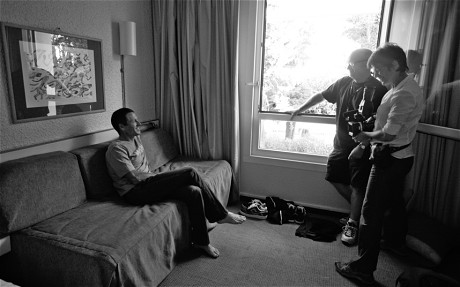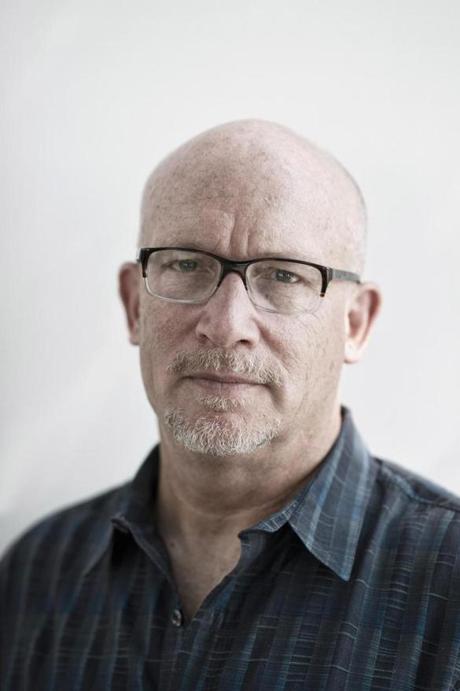Ca aurait pu être le titre du long métrage qui sortira en France le 25 juin 2014. The Armstrong Lie, d’Alex Gibney, retrace le retour de Lance Armstrong voulant remporter son huitième Tour de France, quatre ans après sa retraite sportive.

Gibney enchaîne des entretiens exclusifs avec l’intéressé, ses anciens coéquipiers ou le Dr Michele Ferrari, éminence grise de la nébuleuse Armstrong. Le fim est ponctué par de belles images d’archives. Le réalisateur est lui-même ébranlé par les paradoxes du personnage : Armstrong n’est pas antipathique, mais il ment les yeux dans les yeux (certains ministres ont tenté de relancer cette technique depuis, sans davantage de succès). Sa rage de vaincre et son immersion dans l’univers médiatico-financier du sport de haut niveau l’emmeneront trop loin.
Gibney décrit bien l’affaire. En 1999, les organisateurs veulent un tour propre et moins rapide. Mais Lance balaie tout, revenu de l’enfer après sa victoire sur le cancer. Du pain béni pour les sponsors… Et ça passe.
That was going to far…I know that now… I didn’t at the time. Ca allait trop loin… Je le sais maintenant… Je l’ignorais à l’époque.
The truth is… That everybody was making money. La vérité, c’est que tout le monde prenait du fric.
Mais comme le réalisateur, dans l’ascension du Ventoux (quelles images!), on veut juste être un fan, on veut juste croire à une belle histoire…
Avec une honorable 3ème place au tour en 2009, le film aurait pu s’arrêtrer là. Mais quatre ans après, tout va s’effondrer. Le Texan, ayant vaincu un cancer des testicules et une des plus grandes courses cyclistes du monde, plonge finalement, dévoré par sa soif de succès.
Ce documentaire nous montre un cycliste passionné et un parfait menteur, sans indulgence ni acharnement. Les titres lui ont été enlevés, mais il a connu le Tour de France…
Pour patienter jusqu’en juin, allez donc rouler un peu. Si c’est trop long, vous pouvez toujours traverser la Manche pour aller au cinéma tout de suite.
This year, The Armstrong Lie comes out. As Peter Keough said on www.bostonglobe.com, it was supposed to be a break from the dark side of humanity. Subjects that Alex Gibney had plumbed in documentaries such as “Enron: The Smartest Guys in the Room” (2005), about the fraudulent corporation that despoiled its employees; “Mea Maxima Culpa: Silence in the House of God” (2012), about the Catholic clergy sex abuse scandal; and, of course, the Oscar-winning “Taxi to the Dark Side” (2007), about an innocent Afghani murdered by American soldiers. Gibney’s new project was supposed to be an uplifting film about redemption and perseverance and inspirational victory, chronicling Lance Armstrong’s attempted comeback in the 2009 Tour de France in search of his eighth victory, and vindication from the charges of doping that had hounded his career.

“I first started realizing that the redemption story might have problems when Floyd Landis [Armstrong’s former teammate who testified that he witnessed Armstrong doping] came forward in 2010,” said Gibney, speaking on the phone last Monday from Chicago, where he was promoting the film. “Then there was the federal investigation. So, suddenly it was, let’s hang on here and see how the story plays out.”
And so the story played out, culminating when Armstrong appeared on TV with Oprah Winfrey last January, and confessed the extent of his dishonesty, admitting to his years of cheating. He was cheating Gibney, too, by going to Oprah; Armstrong had promised that Gibney would be the first person he would talk to when he came clean.
“I was pretty angry,” Gibney said. “But I would have been more shocked and angry if I had been a true believer. But what made me really angry was that I realized I had been used. And I felt he owed it to me to sit down and talk with me again.”
Armstrong ultimately did sit down with Gibney, and that interview was combined with the existing footage documenting the 2009 race. Gibney also included interviews with Betsy Andreu, the wife of former Armstrong teammate Frankie Andreu, and someone whom Gibney regards as one of the few real heroes of the story. She had testified in 2005 that she overheard Armstrong describe his drug use to a physician in 1996 while he was being treated for cancer. She resisted pressure from Armstrong and associates to recant these statements and, as is often the case with whistleblowers, paid the price.
“I lost a lot of time with my kids,” Andreu said by phone from New York, where she was participating in a press day for the film. “For so long I was trying to be heard, to say, look, I never lied. Answering questions, contacting people. Making the case that I was telling the truth. When you’re defending yourself for a good 10 years it’s not fun. I was defamed and publicly excoriated and I always told the truth. We lost so much money. But they can keep the money. I’ll take the peace within.”
Andreu feels the film now goes a long way to setting the record straight, and these additions and the new context elevated the project from what Gibney himself described as a “feel-good movie” to something more complex and ambiguous, which reflects on itself and on Armstrong’s adept myth-making.
“I think now it’s a more profound movie,” Gibney said. “It’s definitely more interesting. The other one had aspects that were great. It was a sports movie, basically. But there was a lot of material already in there that did anticipate the idea of myth-building and how you could hide a myth in plain sight. As far back as 1999 there was a lot of evidence that Lance had doped, but between Lance’s forceful personality and the enormous appeal of his narrative, all the allegations never seemed to stick. People were more interested in the beautiful lie than the ugly truth.”
“Lance is afflicted with what police call ‘noble cause corruption’” Gibney explained. “He thought his work entitled him to tell lies and crush those who threatened him, because the ends justify the means.”
“I think now it’s a more profound movie. It’s definitely more interesting” Gibney on his documentary about Armstrong, which went from being titled “The Road Back” to “The Armstrong Lie.”
All the english part of this article comes from the original text of Peter Keough.
Vous pouvez suivre VeloChannel sur Facebook/VeloChannel et sur Twitter@VeloChannel.
You can followVeloChannel at Facebook/VeloChannel and at Twitter@VeloChannel.

